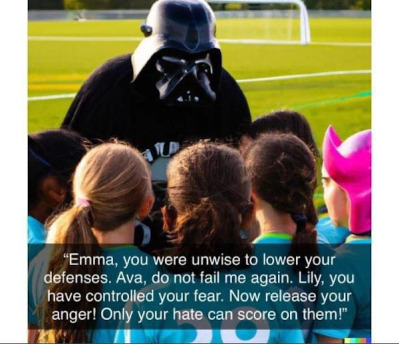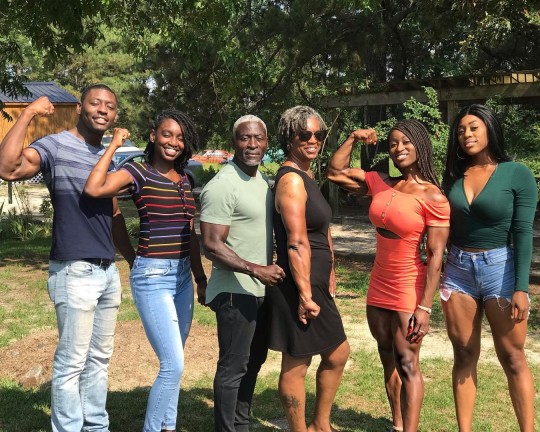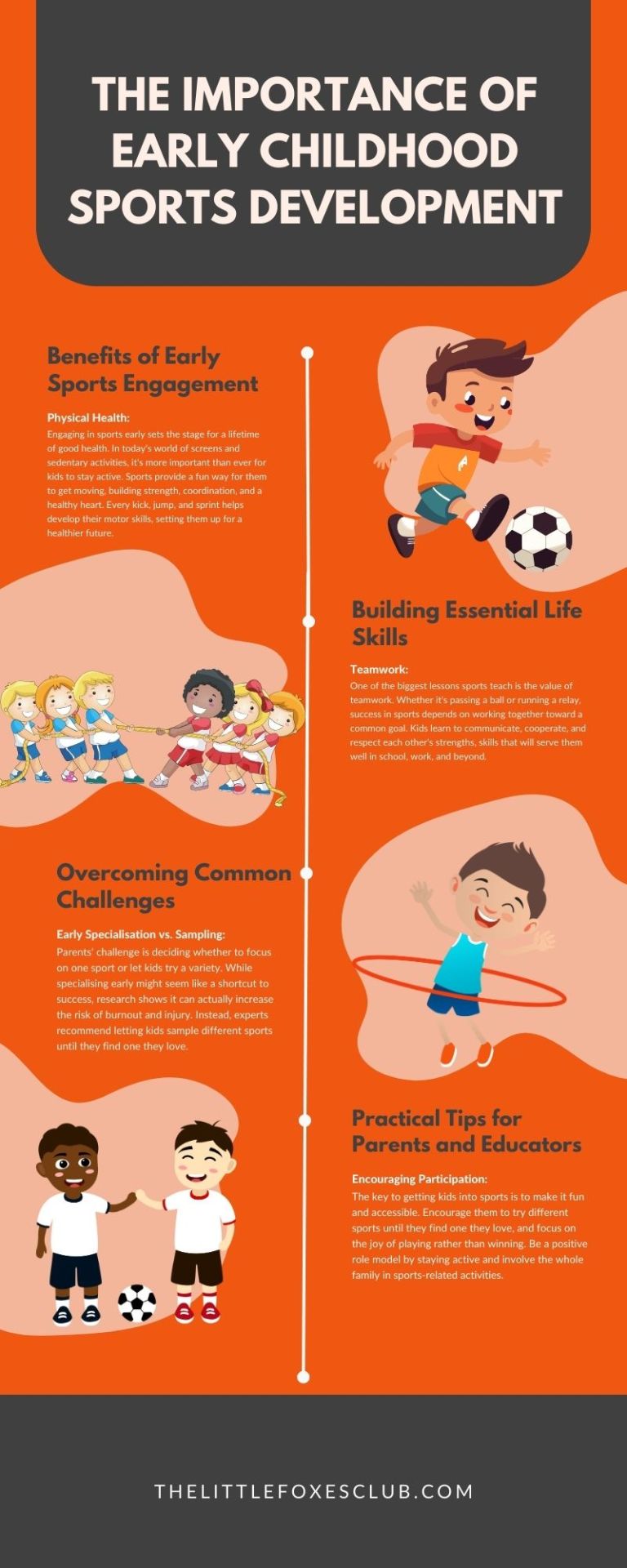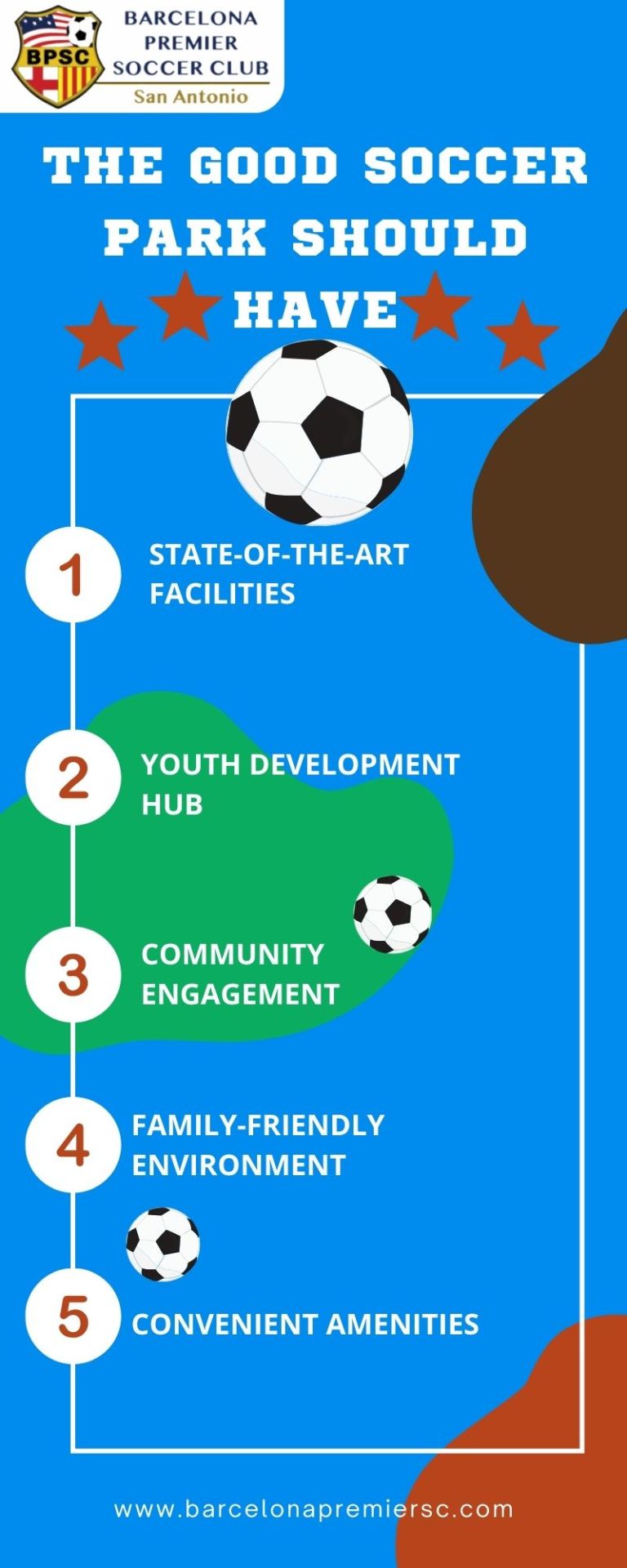#youth sports
Text
Empire Soccer League

#soccer#youth sports#Youth soccer#darth vader#girls soccer#starwars#star wars#galactic empire#Empire#sw memes#stljedi
47 notes
·
View notes
Text










itsashbee: Anything is possible when you have the right people in your life to support you. ➖ 👨🏾🦳👩🏽🦱👩🏾👩🏾👩🏽🧔🏾➖
Find your tribe and love them hard 💪🏾. I can’t wait for the retake of this picture guys! So proud of you ALL! pops - mom - brother - sisters - daughters - fit family
#Ashley Soto#Tiffany Williams#Dorothy Barksdale#Brandi Barksdale#Margie Martin#fitness#family#parents#children#siblings#couple#swolemates#youth sports#sportswoman#fit over 50#personal trainer#quads#smile#bicep#triceps#gym
3 notes
·
View notes
Text
As of this post, there's 42 hours left for Liam's Jr. Icemen Travel Season Fundraiser! Between what we've gotten in this and what we got in the t-shirt fundraiser, one month's payment has been completely covered!
My sister also came through and paid for his required uniform (which was an additional $415 ahahahahaha) but we still have a long way to go. This is JUST for his season dues to play, not the travel costs that will happen throughout the season (gas, hotels, food, etc.).
I know we're all struggling and there are a lot of people in greater need of things, so if you can't or don't want to donate, please consider sharing this so it can reach more people who may be able to help. Every little bit helps!
Don't forget to cheer on #16 starting in August! ❤️
I also just started a Ko-Fi, and I genuinely don't know what I'm doing, but I figured since I can't really get an actual second job, this could possibly work as one. I'm making an official announcement for it when I get back from vacation that explains all the commissions and membership tiers for anyone interested, but you can always go take a look and see if you're interested now!
8 notes
·
View notes
Text
Creating a more enjoyable youth sports experience is not only beneficial for the young athletes but also for coaches, parents, and the community as a whole. By emphasising inclusivity, skill development, variety, and accessibility, you can make sports more appealing to a wider range of children. Motivating young athletes through realistic goal-setting and celebrating their achievements helps keep their enthusiasm high.
2 notes
·
View notes
Text

Another logo for the local youth basketball team.
1 note
·
View note
Text
For women’s and youth NZ teams, applications open now to join the America’s Cup team. Apply on their website!
youtube
Looking forward to seeing the next legends of NZ sailing training on the Haraiki Gulf and competing in Europe!
If you’ve got the citizenship and a sailing resume, go for it.
#competitive sailing#oh to be a 🥝#ENTZ sailing team#ac37 prep#youth sports#women’s america’s cup#youth america’s cup#women in sports#america’s cup#competitive sailors#next gen#youtube
2 notes
·
View notes
Text
How to approach the 1st-and-3rd situation in baseball
Few scenarios in baseball are as complex as the first-and-third situation, especially with less than two outs.
There’s an argument that coaches overdo it with a multitude of plays — a straight throw to second, a throw to third or some kind of safety valve where the pitcher or second baseman cuts off the throw to second in case the runner from third breaks.
Some say all you need to do is let your catcher make the throw to second, and whoever covers the bag makes the play like normal and just has to be ready to fire home.
That works for the pros, college teams and good high school teams.
The reason coaches implement these elaborate plays at the youth level is they have to make up for the fact that no matter the skill level of their middle infielders and catcher, it’s unlikely all of them have the arm strength to play it straight up.
Relaying a bunch of signs and having players out of position is not good, but the offense is at such an advantage that you have to do something.
3 notes
·
View notes
Text
"Instead of fighting to unmask children, or debate medical rights, parents across the nation are happy to play sports with their kids in the comforts of their own space. We don’t have the time, money, or energy to deal with unnecessary restrictions and that is why youth programs are having issues finding participants now. Parents realized that we don’t need to support youth programs that didn’t support us, or our children’s rights."
#medical rights#medical choice#covid#covid-19#covid restrictions#mask mandates#vaccine requirements#covid vaccine#vax#mandates#plandemic#pandemic#sports#youth sports#children's activities#parenting#motherhood#children#family
5 notes
·
View notes
Text
Brag About Yourself Leah Lapham - The RI Baseball Player, Now The RI Softball Player
Brag About Yourself Leah Lapham – The RI Baseball Player, Now The RI Softball Player
One of my favorite memories covering Rhode Island baseball was the 2020 Chariho All Star Weekend Tournament, which is now called the Joe Charette Memorial Tournament. That tournament was the result of a lot of hard work by Chris Charette and the incredible team of volunteers at Chariho Little League. And was created to give Rhode Island Little League players, coaches, and families a chance at a…

View On WordPress
#baseball#baseball field#community#coventry#high school#local#rhode island#softball#sports#tournament#youth sports
2 notes
·
View notes
Text
10 Creative Fundraising Ideas to Support Youth Sports Teams

Exploration of various creative fundraising ideas to support youth sports teams. From hosting sports-themed tournaments and car wash fundraisers to leveraging crowdfunding campaigns and sponsorship platforms, each strategy is outlined with comprehensive explanations and actionable insights. Whether organizing community BBQs, selling team merchandise, or planning auction events, these fundraising ideas aim to engage the community, foster team spirit, and generate essential funds to support youth sports programs.
0 notes
Text
Fighting For Overtime Ep: 2 - The trials and tribulations of helping our Kids choose between multiple sports at a very young age. Why is it so stressful?
0 notes
Text

The Importance of Early Childhood Sports Development
0 notes
Text

Discover the ultimate youth soccer experience in San Antonio with Barcelona Premier Soccer Club. Our elite coaching staff fosters skill development, teamwork, and a passion for the beautiful game. Join us to elevate your child's soccer journey to new heights
0 notes
Text
Youth Sports
Youth sports have been a big part of my life and I would do the same for my children. It can shape and mold young people into being more responsible adults. A couple of qualities that children can learn when playing a team sport. Timeliness, you have to be on time to participate in practice and games to show up for yourself and your teammates. Responsibility, you will need to be responsible for your actions and assignments so you can achieve a goal. Trustworthiness, you need to be able to develop trust and chemistry with your teammates. It can help you become a good team to a great team. They will develop better communication skills, they will be in situations where they will need to communicate with one another to complete a task. Some experiences I went through that helped prepare me for life today. For example, dealing with people who are not motivated and trying to motivate them to do better. Learning and dealing with anxiety, pressure situations cause anxiety so it is beneficial for children to understand what it is. I learned much more that is just the tip of the iceberg, I understand the cons of it as well.
Kids feeling left out or forgotten. Kids not being “good enough” or just do not like activity at all. But these “cons” can be used as lessons for children. One is to become a better student of the game, understand the true value of hard work. If they have the feeling of being left out then it is time for them to explain their feelings about why they do and it can lead to other conversations. If they do not like the activity then find one that suits their needs but understand that they will be in a sport to get some activity in and to be in a good healthy state.
All in all, whatever you see fit for your child is best. But having involving them in team activities can give them tools for their future life. Although sports are good for teamwork and responsibilities, it is competitive. Is competition healthy? that is a topic for another time. But please give me your feedback.
What are your thoughts on this? Is competition too much? Should we involve children in more individualistic sports?
1 note
·
View note
Text
Top Tips and Strategies for Effective Basketball Coaching for Youth

Picture this: the squeak of sneakers on the hardwood, the sound of the buzzer signaling game time, and a team of young, eager athletes ready to hit the court. As a youth basketball coach, you’re not just teaching the game; you’re molding future champions, both on and off the court.
But let’s face it, coaching youth basketball isn’t all slam dunks and three-pointers. It’s a dynamic blend of strategy, mentorship, and pure passion for the game. That’s where we come in. In this guide, we’re serving up a fast break of tips and strategies designed to turbocharge your coaching skills and inspire your players to reach new heights.
IMPORTANCE OF COACHING IN DEVELOPING YOUNG PLAYERS
Coaching youth basketball isn’t just about teaching kids how to shoot hoops or execute the perfect pick-and-roll. It’s about shaping the next generation of athletes and instilling in them the values and skills they’ll carry with them far beyond the court.
Skill Development: At its core, coaching youth basketball is about helping young players develop their skills. From mastering the fundamentals like dribbling and shooting to honing more advanced techniques, coaches play a pivotal role in guiding players along their basketball journey.
Character Building: Beyond the X’s and O’s of the game, coaching youth basketball provides an opportunity to teach important life lessons. From teamwork and sportsmanship to resilience and leadership, the lessons learned on the court can have a profound impact on a player’s character and development.
Building Confidence: For many young athletes, basketball serves as a platform for building confidence and self-esteem. A supportive coach who believes in their players’ potential can empower them to push past their limits and achieve greatness, both on and off the court.
CHALLENGES SPECIFIC TO COACHING YOUTH BASKETBALL TEAMS
Coaching youth basketball comes with its own set of unique challenges, ranging from managing different skill levels to balancing the competitive spirit with a focus on player development.
Skill Disparities: Youth basketball teams often consist of players with varying skill levels, from beginners who are just learning the basics to more advanced athletes with years of experience. Balancing the needs of players at different stages of development can be a challenge for coaches.
Short Attention Spans: Let’s face it, kids can have short attention spans. Keeping young players engaged and focused during practices and games requires creativity, energy, and a willingness to adapt coaching methods to suit the needs of the team.
Parental Involvement: Parental involvement can be both a blessing and a challenge for youth basketball coaches. While supportive parents can be a valuable asset to the team, navigating parental expectations and managing conflicts can sometimes add an extra layer of complexity to the coaching role.
EMPHASIZING FUNDAMENTALS: DRIBBLING, SHOOTING, PASSING, DEFENSE
When it comes to coaching youth basketball, there’s no substitute for a solid foundation in the fundamentals of the game. Whether players are brand new to basketball or aspiring to take their skills to the next level, mastering the basics is essential for success on the court.
Dribbling: Dribbling is the bread and butter of basketball. Teaching young players proper dribbling technique, including hand placement, footwork, and ball control, lays the groundwork for all other aspects of their game. Emphasizing dribbling drills and exercises helps players build confidence and become more comfortable handling the ball in game situations.
Shooting: Shooting is perhaps the most fundamental skill in basketball. Coaches should focus on teaching players proper shooting mechanics, including stance, grip, and follow-through, while also emphasizing the importance of accuracy and consistency. By breaking down the shooting motion into its component parts and providing plenty of opportunities for practice, coaches can help players develop their shooting skills and become more effective scorers on the court.
Passing: Basketball is a team sport, and passing is the key to effective teamwork. Teaching young players how to make crisp, accurate passes, as well as how to move without the ball to create passing lanes, is essential for developing a cohesive offense. Incorporating passing drills and activities into practice sessions helps players improve their passing skills and learn to anticipate their teammates’ movements.
Defense: Defense wins championships, and teaching young players the fundamentals of defensive positioning, footwork, and communication is essential for building a strong defensive mindset. Emphasizing the importance of effort and intensity on the defensive end of the court, as well as teaching players how to anticipate their opponents’ moves and react accordingly, helps lay the foundation for a solid team defense.
CREATING STRUCTURED PRACTICE PLANS FOCUSED ON SKILL DEVELOPMENT
Effective coaching starts with effective planning. Creating structured practice plans that are focused on skill development ensures that players are making the most of their time on the court and are consistently improving their basketball skills.
Identify Areas for Improvement: Before each practice, take the time to assess your team’s strengths and weaknesses and identify areas for improvement. Whether it’s shooting, passing, defense, or another aspect of the game, tailor your practice plans to address the specific needs of your team.
Break It Down: Break down each skill into its component parts and design drills and exercises that target those specific areas. For example, if you’re working on shooting, you might start with form shooting close to the basket before gradually moving out to mid-range and three-point shots.
Progressive Drills: Use progressive drills and exercises that gradually increase in difficulty to challenge your players and help them continue to develop their skills. Start with simple drills and gradually increase the complexity as players become more proficient.
Repetition is Key: Repetition is key to skill development. Encourage your players to embrace the grind and put in the work to master the fundamentals. By incorporating plenty of repetition into your practice plans, you’ll help players develop muscle memory and become more consistent in their execution of skills.
TEACHING PLAYERS TO UNDERSTAND BASKETBALL CONCEPTS AND STRATEGIES
Basketball is not just about running up and down the court; it’s a strategic game that requires players to think critically and make split-second decisions. As youth basketball coaches, one of our primary responsibilities is to teach players the ins and outs of basketball concepts and strategies.
Offensive Concepts: Start by teaching players the basic offensive concepts, such as spacing, movement without the ball, and reading the defense. Help them understand the importance of setting screens, making cuts, and finding open teammates to create scoring opportunities.
Defensive Strategies: Similarly, introduce players to defensive strategies, such as man-to-man defense, zone defense, and defensive rotations. Teach them how to communicate effectively on defense, anticipate their opponents’ moves, and work together as a cohesive unit to stop the opposing team.
Basketball IQ: Encourage players to develop their basketball IQ by studying the game, watching basketball at all levels, and analyzing game situations. Help them understand the nuances of the game, such as when to push the tempo, when to slow down the pace, and how to exploit mismatches on the court.
EMPHASIZING DECISION-MAKING AND SITUATIONAL AWARENESS
In basketball, split-second decisions can make all the difference between winning and losing. That’s why it’s crucial to emphasize decision-making and situational awareness in your coaching approach.
Game Scenarios: Incorporate game-like scenarios into your practices to give players opportunities to make decisions in real-time. For example, set up scrimmage situations with specific scenarios, such as trailing by two points with 30 seconds left or defending a fast break.
Teachable Moments: Use every practice and game as a teaching opportunity to reinforce decision-making skills. Provide feedback and guidance to players on their decision-making process, praising good decisions and offering constructive criticism when needed.
Film Study: Consider incorporating film study into your coaching routine to help players develop their situational awareness. Review game footage together as a team, pointing out key moments and discussing the decisions made by players in various situations.
PROVIDING OPPORTUNITIES FOR GAME-LIKE SIMULATIONS AND SCENARIOS
Practice makes perfect, and there’s no better way to prepare players for game situations than by providing them with opportunities for game-like simulations and scenarios.
Scrimmages: Organize scrimmages during practice sessions to simulate game conditions and give players the chance to put their skills to the test in a competitive environment. Use scrimmages as an opportunity to work on specific aspects of the game, such as executing set plays or implementing defensive strategies.
Drills with Purpose: Structure your drills with a specific purpose in mind, whether it’s improving decision-making, enhancing situational awareness, or implementing specific game strategies. Incorporate game-like scenarios into your drills to help players develop the skills they need to succeed in actual game situations.
Game Analysis: After games, take the time to analyze performance as a team and identify areas for improvement. Discuss specific game situations and decisions made by players, highlighting both successes and areas for growth. Use this feedback to inform future practice plans and focus areas.
By teaching players to understand basketball concepts and strategies, emphasizing decision-making and situational awareness, and providing opportunities for game-like simulations and scenarios, coaches can help develop their players’ game intelligence and prepare them for success on the court. Ultimately, developing game intelligence is about more than just X’s and O’s; it’s about instilling in players the ability to think critically, make smart decisions, and adapt to ever-changing game situations.
At its core, coaching youth basketball is about more than just teaching the game; it’s about shaping character, instilling values, and empowering young athletes to reach their full potential, both on and off the court. So, as you step onto the court with your team, remember that you’re not just coaching basketball; you’re shaping the next generation of athletes and leaders. Embrace the challenges, celebrate the victories, and never underestimate the power of a positive role model and mentor.
Together, let’s continue to inspire, empower, and elevate the game of basketball for generations to come.
0 notes